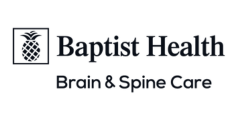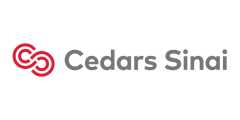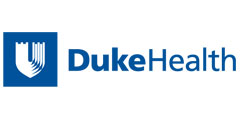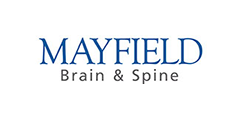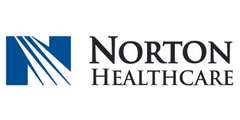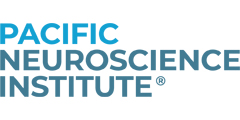- Details
The Acoustic Neuroma Association is proud to announce the endorsement of H.R. 4606 and S. 3400, also known as Ally's Act.
Ally, from Broomfield, Colorado, and Congressman Joe Neguse’s constituent was born without a right ear or hearing canal and therefore requires the use of a bone-anchored hearing aid (“BAHA”), which is one form of osseointegrated device (“OIDs”). Following a denial for her hearing device, Ally and her mother, Melissa, formed the organization Ear Community to help advocate for insurance coverage of these hearing devices to ensure no person is left unable to hear because of private insurance companies’ refusal to cover OIDs.
Ally’s Act is a bipartisan national-level bill that will ensure that private insurers provide insurance coverage for Osseointegrated hearing devices (OIDs), including bone-anchored hearing aids (BAHA) and cochlear implants (CI). This bill will help thousands of children and adults up to age 64 hear their best when requiring the use of these hearing devices.
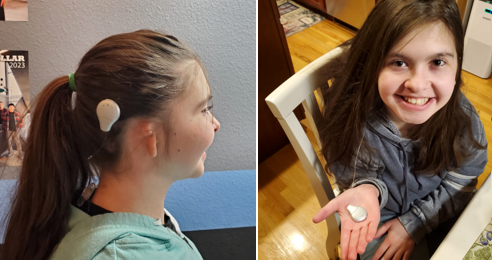
Updates:
- December 9th, 2025 - Ally's Act was introduced again in the Senate as S. 3400, by Senator John Curtis, Lead, and Senator Elizabeth Warren, Co-Lead. Ally's Act is currently moving through both the House and Senate. For current updates and information about how you can support Ally's Act, visit earcommunity.org.
- July 22, 2025 - Ally's Act was reintroduced in Congress for the 119th session (2025-2026) with new bill number, H.R. 4606. Please write, call, and try to schedule meetings with your Congressmen, asking them to cosponsor Ally's Act, H.R. 4606. Tips, template letters, and a phone call script are all available on Ear Community's website here. The companion bill for the Senate will be introduced again shortly.
- May 2, 2025 - Ear Community's lobbyists/advocates, Sean Callinicos & Ryan McDevitt, spent the day on The Hill in Washington, D.C., advocating for Ally's Act, meeting with Congressional & Senate offices. Ally’s Act will be reintroduced again for the 119th session (2025-2026). As soon as the bill is reintroduced, there will be new bill numbers assigned to it, replacing H.R. 2439 & S. 1135. Please visit earcommunity.org for the latest updates.
- March 30, 2023 – Ally’s Act was reintroduced to the 118th session of Congress. Minor changes to the bill were made to help strengthen this legislation. The services under Ally's Act remain intact and have not changed. You can read the revised bills below. View the latest press release here. H.R. 2439 Bill S. 1135 Bill
- November 2022 - Ally's Act will most likely be reintroduced for the next session of Congress in January/February 2023 and will be reassigned new bill numbers. More information will be available at that time.
- June – August 2022 – Push underway to get a hearing this year to make Ally’s Act a Federal Bill.
Please email and call the (13) Representatives on this list, including your local Congressman. - Thursday, October 14, 2021 - To follow the status of Ally’s Act as it moves through Congress, visit here , and as it moves through the Senate , here.Some members of the House Energy and Commerce Committee are pushing for a hearing, specifically Congressman Frank Pallone, Jr., Chairman, House Energy and Commerce Committee, and Congresswoman Anna Eshoo, Energy and Commerce Committee, Chairwoman of the Subcommittee for Health.
If you have written a support letter before, please consider writing one again, especially for constituents who live in the districts of Reps Anna Eshoo (CA) and Frank Pallone (NJ). - Wednesday, August 4, 2021 - A written request for a hearing was submitted by Congressman Joe Neguse to members of the House Energy and Commerce Committee.
- Wednesday, July 7th, 2021 - The HR and SB numbers have changed to:
HR 477
S. 41 - Wednesday, January 27th, 2021 - Congressman Joe Neguse Reintroduces Ally's Act
- Thursday, September 9th, 2020 - the companion bill to Ally's Act, H.R. 5485 was introduced to the Senate, S. 4532.
Ally’s Act would provide the following for every state:
1. Coverage for a BAHA or CI device.
2. Upgrade replacement of these hearing devices every 5 years
3. Cover accessories including softband head band, hard band and adhesives.
4. Cover repairs for these devices
5. Cover (1) hearing assessment per year
6. Cover (1) preoperative assessment per year
7. Cover implantation surgery
8. Cover post-operative medical appointments
9. Cover post-operative audiological appointments for fittings, programming and activation
10.Provide aural services related to the use of this device.
If you would like to support this bill, here’s what you can do.
Write to your local congressmen/women and Senators asking your Representatives to support and co-sponsor Ally’s Act. Tell them why this bill is so important and please remember, your voice matters! For your convenience, we have provided a downloadable template letter. Just customize, print and mail!
Ally's Act Support Letter Template
Overview of Ally's Act
Presented by Melissa Tumblin
Founder - Executive Director
Ear Community
August 29, 2020
For more information about Ally's Act, visit Ear Community.
- Details
We sometimes hear from patients and caregivers who wonder why they aren’t receiving communications from us, only to learn that they previously unsubscribed.
In addition to our At-A-Glance newsletter and Upcoming Meetings and Events, we also share volunteer opportunities and up-to-date medical information, including research updates. If you’d like to re-subscribe, please click on the link below.
- Details
Specialty Support Groups
Support Groups by State
If you need help finding a group or are interested in starting a group, contact us.
- Details
Evaluating Pre-Treatment Vestibular Physical Therapy Rehab for Patients with Vestibular Schwannomas (VS PREHAB)
In-Person Study

Purpose
The investigators aim to estimate mean baseline and post-treatment balance scores among Vestibular Schwannomas (VS) patients undergoing pretreatment rehab (PREHAB) or no PREHAB when managed with either surgery or radiosurgery.
Study Overview
A PREHAB visit will be done once weekly for three weeks to determine exercise regimen prior to surgery or radiotherapy. Therapy includes balance exercises (twice daily), gaze stabilization exercises (12-20 minutes daily), and habituation exercises (as applicable). Standard surgical approaches including retrosigmoid, translabyrinthine, and middle fossa and radiosurgical (SRS) delivery will be determined based on current VS management guidelines and followed by study randomization to PREHAB.
Eligibility Criteria
- Provision of signed and dated informed consent form
- Male or female participants ≥18 years of age.
- Initial diagnosis of a Vestibular Schwannoma confirmed by a physician with an internal auditory canal (IAC) MRI, in accordance with standard or institutional practice
- VS patients who present with a tumor size ≤2.5 cm and will be treated with surgery or SRS
- Eastern Cooperative Oncology Group (ECOG) Performance Status <2
- Within 14 days of study registration, participants must have normal laboratory values that support safe treatment, at the discretion of the treating investigator
- Be willing to adhere to outlined study protocol criteria and complete self-reported questionnaires (translations may be made available if the patient' primary language is not English).
- For females of reproductive potential: must have a negative urine or serum pregnancy test 7 prior to enrollment and agreement to use of highly effective contraception method during study participation and for an additional 24 weeks after the completion of stereotactic radiosurgery.
Location:
Froedtert Hospital, Medical College of Wisconsin
Milwaukee, WI, USA
Contact:
Michael Harris, MD
Medical College of Wisconsin
Email: msharris@mcw.edu
For more information:
https://clinicaltrials.gov/study/NCT05702749?term=vestibular%20prehab&rank=1#study-overview
- Details
Update My Information
The ANA is dedicated to empowering patients to take an active role in their care by creating impactful programs, funding research, and collaborating with top medical centers and leading healthcare providers - supporting you along every step of your AN journey.
Our commitment includes a robust lineup of support group meetings, webinars, and educational events, plus our quarterly NOTES newsletter, featuring insights on treatment options, regrowth, hearing and balance issues, managing headaches, and navigating the “Watch and Wait” approach.
Please take a moment to ensure we have your most up-to-date information, so you’ll have access to these critical resources.





